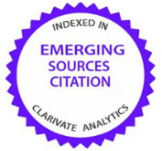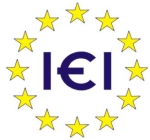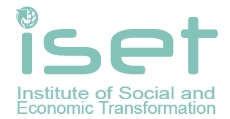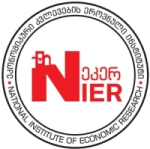Transport and logistic components of waste management strategies in the context of implementing resource-saving and environmental policy
Abstract
Introduction. The overall situation in the field of waste management in Ukraine is extremely difficult, which is explained by the lack of preventive resource conservation and environmental protection policies, as well as the lack of financing of measures aimed at eliminating the negative consequences resulting from the increasing generation of waste. In particular, due to insufficient financing of landfill contents: there are violations of the schedules of their sanitary cleaning, which leads to the formation of spontaneous landfills in the territories of residential development, especially in rural areas; there are cases of chaotic accumulation of waste that is not compacted and not filled with soil; most landfills and the surrounding area have a terrible look. The general state of waste in Ukraine highlights the urgency and seriousness of the problem of domestic and industrial waste management.
Aim and tasks. The purpose of the article is to substantiate the role and disclosure of the peculiarities of the transport and logistics component of waste management strategies in the context of implementing resource-saving and environmental policy in Ukraine.
Results. As a result of the research it is determined that the reform of the waste management system is necessary, which envisages solving of such key organizational, economic and managerial tasks in the context of realization of resource saving and environmental protection policy in Ukraine. The organizational and economic directions of waste management reform are: effective implementation of separate waste collection; construction of new landfills and waste treatment plants; information and institutional support for issues related to waste management; economically justified tariff formation ; stabilization of the finance industry through the introduction of a system of fines for violating legislation, in particular, on the separate collection of waste and the transfer of funds received to the development of the industry, investments provided by state guarantees on the return of capital invested by the investor.
Conclusions. At present the reform of the waste management system is necessary by means of solving a series of interrelated organizational, economic and managerial tasks in the context of implementation of resource conservation and environmental protection policy in Ukraine. In particular, it is about the need for financial stabilization of the industry, the expediency of strengthening regulatory instruments and, at the same time, motivational instruments, etc. Based on the analysis of the relationship between these objectives and the objectives of environmental policy, in particular in the field of transport and logistics, as well as the content and constituents of waste management strategies in Ukraine, it was concluded that there is a need for an integrated approach to determine the role and place of transport-logistic component.
Keywords:
waste, transport logistics, organizational and economic tasks, management strategy, environmental policyReferences
2. Ukrainian twice annually create more waste than EU citizens (2017). UNIAN, November 8, 2017. Retrieved from: https://www.unian.ua/ecology/trash/2231894-ukrajintsi-schoroku-utvoryuyut-vdvichi-bilshe-vidhodiv-nij-gromadyani-krajin-es.html [in Ukrainian].
3. Environment of Ukraine for 2017 (2018). Statistical Collection. State Statistics Service of Ukraine. Ed. O. M. Prokopenko. Kyyv. [in Ukrainian].
4. Tragedy near Lviv: Village Council permanently closed the landfill in Velyki Hrybovychy (2016). New time. June 2, 2016. Retrieved from: https://nv.ua/ukr/ukraine/events/silska-rada-nazavzhdi-zakrila-smittjezvalishche-u-velikih-gribovichah-138483.html [in Ukrainian].
5. Burkinsky, B.V., Martyenko, A. I., & Khumarova, N. I. (2016). Institutional aspects of administration of the sphere of natural resources use in Ukraine. Economy of Ukraine, 1, 72–83 [in Ukrainian].
6. Martienko, A., & Khumarova, N. (2017). Improvement of the administration system in the field of natural resources use. Economics. Ecology. Socium, 1(1), 71–81.
7. Khumarova, N. I. (2007). Resource saving as a dominant source of regional development ecology (on the example of the Seaside regions). Nowoczesnosc ponowoczesnosc spoleczenstwo obywatelskie weuropie srodkowej iwschodniej. Lublin: Wydawnictwo KUL, Vol. 2, 491–496 [in Russian].
8. Petrushenko, М. М. (2013). Forecasting and regulating the development of the national economy: socio-natural and economic contradictions. Sumy: University Book [in Ukrainian].
9. Prokopenko, O., Kysly, V., & Shevchenko, H. (2014). Peculiarities of the natural resources economic estimation under the transformational conditions. Economical Annals-ХХІ, 7-8(1), 40–43.
10. Shevchenko, H., Pakhomov, V., & Petrushenko, M. (2016). Economic and legal issues of rural and recreational land use in Ukraine. Economical Annals-ХХІ, 156, 54–58.
11. Orfanova, M. M., & Ivanyk, O. I. (2016). Improvement of solid waste management system in the city of Ivano-Frankivsk. Man and the environment. Problems of neoecology, 3–4, 126–131 [in Ukrainian].
12. Kharchenko, T. B., & Sahaydak, Yu. (2014). Improvement of the solid waste recycling system in Ukraine. Herald of Kiyv National University named Taras Shevchenko. Series: Economics, 165, 41–45 [in Ukrainian].
13. Semenenko, I. S., & Suprunenko, O. V. (2011). The problem of household waste management in the Zakarpatska oblast in modern economic conditions. Scientific Bulletin of Uzhgorod University. Series Economics, 33(4), 114–119 [in Ukrainian].
14. Khumarova, N. I. (2008). Ecologization of innovative strategies to reduce the waste of production. Journal of economics of science of Ukraine, 2, 155–160 [in Russian].
15. Bing, X., Bloemhof-Ruwaard, J. M. & van der Vorst, J. G. A. J. (2014). Sustainable reverse logistics network design for household plastic waste. Flexible Services and Manufacturing Journal, 26, 119. doi:10.1007/s10696-012-9149-0.
16. Das, S., & Bhattacharyya, B. K. (2015). Optimization of municipal solid waste collection and transportation routes. Waste Management, 43, 9–18. doi:10.1016/j.wasman.2015.06.033.
17. Jalil, E. E. A., Grant, D. B., Nicholson, J. D. & Deutz, P. (2016). Reverse logistics in household recycling and waste systems: a symbiosis perspective. Supply Chain Management: An International Journal, 21(2), 245–258. doi:10.1108/SCM-02-2015-0056.
18. Peri, G., Ferrante, P., La Gennusa, M., Pianello, C., & Rizzo, G. (2018). Greening MSW management systems by saving footprint: The contribution oft he waste transportation. Journal of Environmental Management, 219(1), 74–83. doi:10.1016/j.jenvman.2018.04.098.
19. Brahinsky, V. V. (2011). Development of transport-logistic system as a form of realization of transit potential of Ukraine. Public Administration: Theory and Practice: Scien. prof. journ. of National acad. of Gov. Man. under the President of Ukraine, 2, 12. Retrieved from: http://www.academy.gov.ua/ej/ej14/txts/Braginskiy.pdf [in Ukrainian].
20. Lyfar, V. V. (2017). Development of transport logistics in the regional system of product flow management. Marketing and management of innovations, 4, 176–187 [in Ukrainian].
21. Hryhorak, M. Yu., & Chychkan-Khlipovka, Yu. M. (2007). Theoretical principles of reversible logistics. Bulletin of the National University “Lviv Polytechnic”, 580, 36–42 [in Ukrainian].
22. Kriventsev, O. (2018). The problem of domestic waste management is relevant and quite acute for Ukraine. ANK-NEWS Ukraine, 5, 3–4 [in Ukrainian].
23. Solid domestic waste in Ukraine: Potential of development (2015). Scripts of the development of the solid waste management industry. Final report. IFC, World Bank Group.
24. Stankevich-Volosyanchuk, O. (2010). Management of solid waste – the state and prospects. Waste Management in Ukraine: Newsletter, December, 1, 3–4 [in Ukrainian].
25. Petrushenko, M. M., & Shevchenko, H. M. (2018). Regulation of ecologic-and-economical risks and the responsibility for human well-being: for example of waste management. Economic Innovations, 3(68), 165–175.
26. Khumarova, N. I. (2010). Institutional mechanism for implementing ecologically oriented strategic plans for the development of territorial economic and ecological systems. Economic innovation, 41, 281–289 [in Ukrainian].
27. In summer, the construction of a waste recycling plant will start in Lviv (2018). That is Lviv. May, 1. Retrieved from: https://inlviv.in.ua/lviv/vlitku-u-lvovi-startuye-budivnytstvo-smittyepererobnogo-zavodu [in Ukrainian].
28. Umwelt Ukraine, LLC (2018). Retrieved from: http://www.umwelt.com.ua/.
29. National Strategy for Waste Management in Ukraine until 2030 (2017). The CMU resolution dated November, 8. №820-р. Retrieved from: https://zakon.rada.gov.ua/laws/show/820-2017-%D1%80#n8. [in Ukrainian].
30. Integrated Solid Waste Management (SWM) Strategy in Tulchin Target Region (2012). Swiss-Ukrainian project DESPRO. Tulchin. Retrieved from: http://despro.org.ua/despro/ [in Ukrainian].
31. Waste Management Strategy in Lviv oblast by 2030 (2017). Lviv Oblast State Administration. 2017. Retrieved from: http://gw1.oblrada.lviv.ua/rada/rishennialor.nsf/52889c345440ab40c2257b55007e8f51/7ccf6ba2bc2c5a79c225820300531eb7/$FILE/580_dod.pdf [in Ukrainian].
32. Sustainable Logistics Strategy and Action Plan for Ukraine. Draft for consideration (2017). Ministry of Infrastructure of Ukraine; World Bank Group. Retrieved from: https://mtu.gov.ua/files/Logistics.pdf [in Ukrainian].
33. Newfoundland and Labrador waste management strategy (2002). Department of environment of Newfoundland and Labrador, April. Retrieved from: https://www.mae.gov.nl.ca/publications/pswms/wastemanagementstrategy_apr2002.pdf.
34. A sustainable waste management strategy drives life-cycle building benefits (2012). WM: Think Green. Retrieved from: https://www.wm.com/documents/pdfs-for-services-section/Sustainable_strategy.pdf.

This work is licensed under a Creative Commons Attribution-NonCommercial 4.0 International License.
If the article is accepted for publication in the journal «Economics. Ecology. Socium» the author must sign an agreementon transfer of copyright. The agreement is sent to the postal (original) or e-mail address (scanned copy) of the journal editions.





















